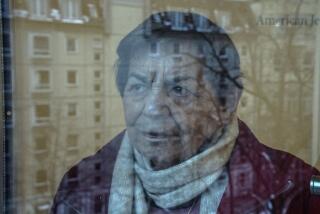Catalonia is first region in mainland Spain to ban bullfighting
The independence-minded region of Catalonia on Wednesday became the first on the Spanish mainland to outlaw bullfighting, a move some say is as much about nationalist politics as animal rights.
Lawmakers in Catalonia’s regional parliament approved the controversial ban, 68-55, with nine abstentions, after emotional speeches that mixed expressions of support for preserving tradition with denunciations of bullfighting as institutionalized cruelty. The ban will take effect in the region, of which Barcelona is the capital, in 2012.
The vote culminated a public initiative to bar bullfighting that began more than 1 1/2 years ago and has drawn international attention. Backers erupted in cheers in the parliament chamber’s gallery and celebrated the legislative seal of approval as a moral victory.
“It’s a historical day today and will be remembered in years to come,” declared Manel Macia Gallemi of the organization Prou, which led the campaign for a ban. “The numbers were tight. We knew that the pro-bullfighting people were doing an incredible job to convince [members of parliament] these last months. In the end … the truth has come alive.”
But critics have assailed the ban as a pretext for more nakedly political ends rather than being purely about animal welfare. They suspect that the true motive is a desire to poke a stick in the eye of the rest of Spain, an assertion of Catalan identity as distinct, different and maybe a bit superior.
The parliamentary vote certainly came during a mood of heightened anger among residents clamoring for more autonomy, if not outright independence.
Catalan nationalists this month mounted one of the biggest demonstrations seen in this sun-splashed corner of northeastern Spain. The protest was fueled by outrage over a long-awaited ruling by Spain’s constitutional court that upheld most of Catalonia’s charter on greater self-rule but refused to recognize a legal basis for calling the region a “nation.”
Conservatives blast the charter as a blueprint for the eventual breakup of the Spanish state, which is confronted with regional tensions, and sometimes violence, in other pockets of the country as well, such as the Basque area.
Banning bullfighting further undermines Spanish unity, say traditionalists, who have pledged to seek protected status for bullfighting as a cultural landmark. Opponents of the ban also argue that it will have adverse economic effects, including eliminating jobs, a bad message to send when unemployment stands at 20%.
Advocates of the ban reject suggestions that their views or actions are a byproduct of Catalan separatism. They see bullfighting not as a sport steeped in romance but a barbaric practice steeped in blood.
Moves to abolish it here date back more than a century. That sentiment has only increased over time. When Prou (Catalan for “Enough”) launched its petition drive to put the issue before lawmakers, its goal was to clear the legal hurdle of 50,000 signatures; it collected 180,000.
But the issue was a sensitive one for politicians, who are facing an election this year.
When the parliament voted several months ago on whether to initiate legislation authorizing a ban, it switched off the chamber’s electronic voting board for the first time in recent memory so that members could cast their ballots in secret.
Before Wednesday’s vote, bullfighting fans and foes gathered outside the parliament building to press their case as lawmakers arrived. Aficionados cried out for “Freedom and bullfights,” while one animal-rights activist stripped naked, then poured a bucket of red liquid over himself to urge legislators to “stop animal cruelty.”
In many ways, the new ban merely hurries the workings of time, at least in Catalonia, where bullfighting’s popularity has long been on the wane. (It remains popular in other parts of Spain, such as Madrid and in Andalusia.)
In days gone by, Barcelona’s main bullring, the Plaza Monumental, hosted sellout crowds eager for even a distant glimpse of a flashing red cape or a madly stamping bull. Now, the arena often struggles to fill half its seats, and of those, many these days are occupied by tourists.
More to Read
Start your day right
Sign up for Essential California for news, features and recommendations from the L.A. Times and beyond in your inbox six days a week.
You may occasionally receive promotional content from the Los Angeles Times.







